It’s been a while since I wrote last and writing a post seems almost alien to me. I’ve just returned from Benares, or Varanasi, or even Kashi, as you’d prefer to call it. It was such a fascinating trip – what a city with such a unique character! But I’ll write about Benares (the place) in another post (or maybe even posts). I’d gone there for a specific purpose actually – before I’d left I had been feeling for a while that my portraits were not “quite there” according to me. (Of course, after I wrote that many of you who read it felt otherwise and for that I’m grateful – so thank you.) Anyway, I went to Benares to photograph people, to allow them to touch me in the deepest recesses of my heart again, to let me know what it means to feel. It was spiritual – maybe not in the classical sense of the word, but perhaps ambrosia to quench the thirst of my soul.
Someone had asked me many weeks back: “Do you have any fears?” to which I had then said “No, I don’t.” But now after meeting so many people in Benares and feeling the love of strangers, I can safely say: “Yes, I do. I fear losing this capacity to feel – which is why I love each day.”
In 1897, Samuel Langhorne Clemens, better known as Mark Twain, the renowned Indophile, said of Varanasi: “Benares is older than history, older than tradition, older even than legend, and looks twice as old as all of them put together.” Nothing could be truer than that. Unto and of itself, Benares is its people – residents and birds of passage, all the same. Full of characters, both devout and dubious, Benares is a photographer’s dream – and I was a child in a candy store there.
Everything there happens in the name of, and for, God. Despite the deluge of outsiders, the people of Benares cling to their roots almost as if diaspora in a foreign land. Each of them has a story to tell…this man brought his wife of many years for a dip in the Holy Ganga (or Ganges) to wash away their sins and remit their karma.
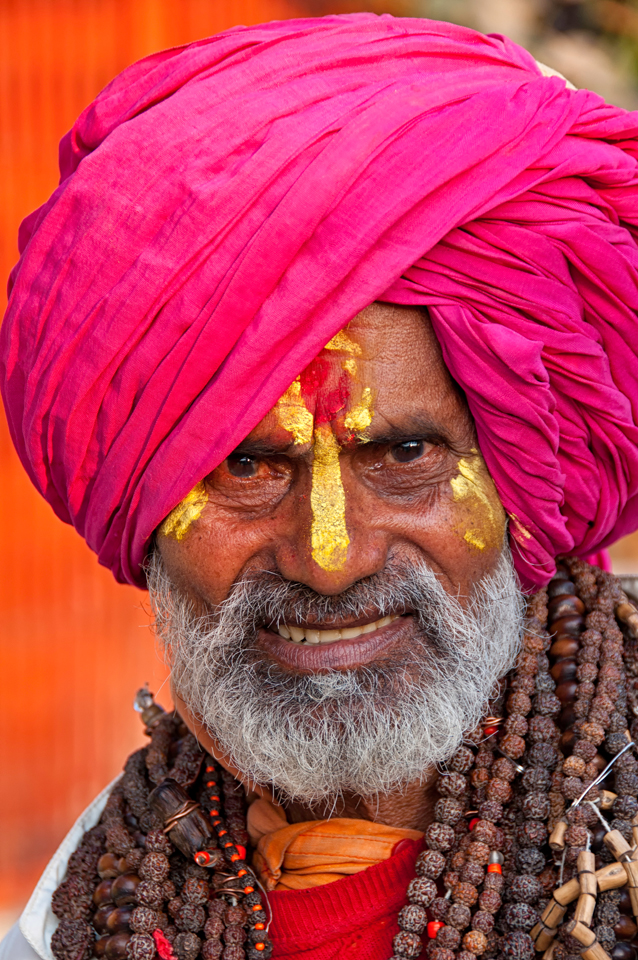
And he is a fruit-seller who was born here; he has sat in the same place for as long as he can remember selling fruits to pilgrims. He said to me that he wants to die here as dying in Kashi is salvation, and ensures release of a person’s soul from the cycle of its transmigrations. (In the Rigveda, the city was referred to as Kashi, “the luminous one” alluding to its historical status as a centre of learning, literature, art and culture. In one verse, the Hindu god Shiva, the Destroyer in the Holy Trinity says, “The three worlds form one city of mine, and Kashi is my royal palace therein.”)
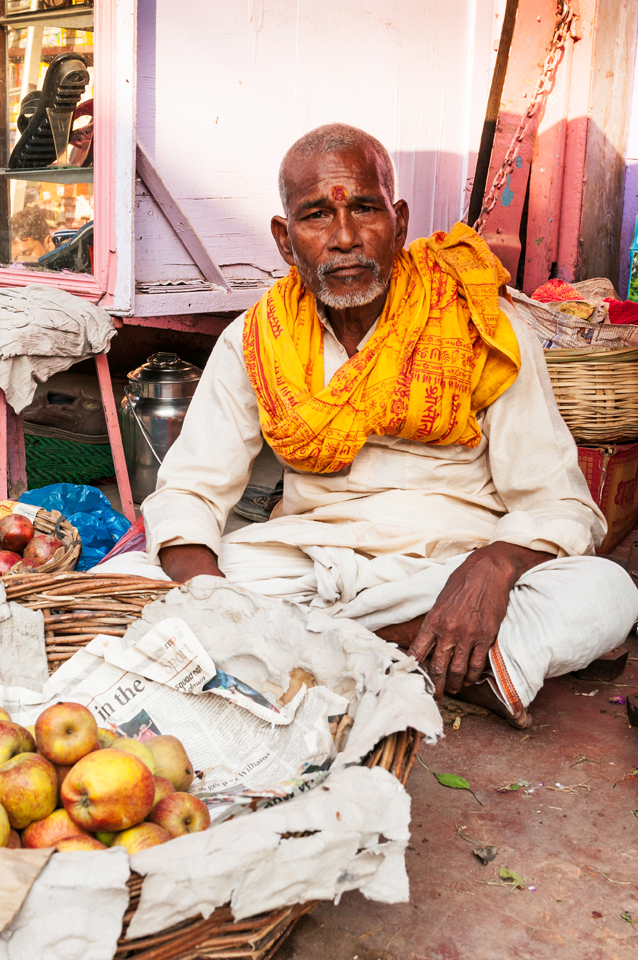
Then I met this Brahmin who only sits and prays at this small temple day and night, every single day of the year. All for the Lord. This is what teaches me the meaning of love, of devotion, of sacrifice.
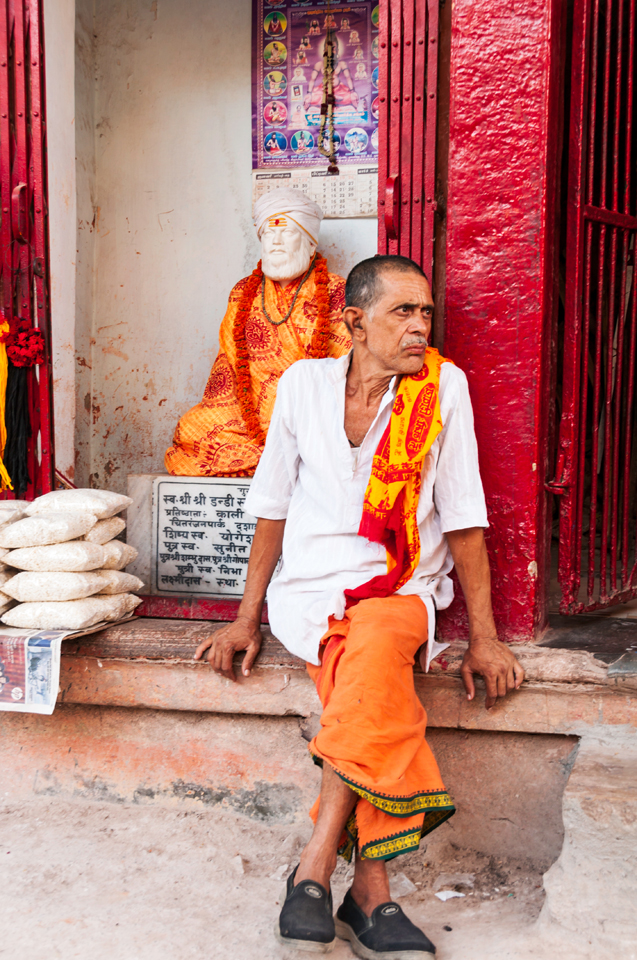
How can Benares be complete without a paan-wallah, the ubiquitous betel-leaf seller ? He offered to have a word with someone so that I could have a vantage view of the evening Ganga aarati (prayers) – for a princely sum of course. I politely declined but not before I got his permission for a photograph!
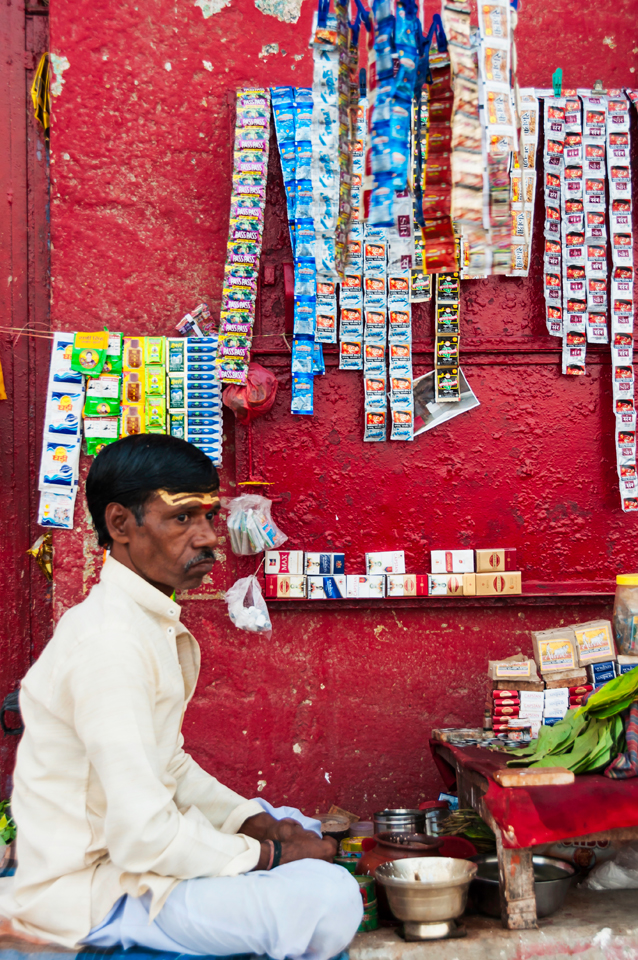
As I was navigating the labyrinthine streets known as gallis near the ghats (bathing steps), I saw this child behind a closed door, surreptitiously peeping through this lattice screen and observing me most closely. I smiled to him, pointed at my camera and he nodded in silent acquiescence…
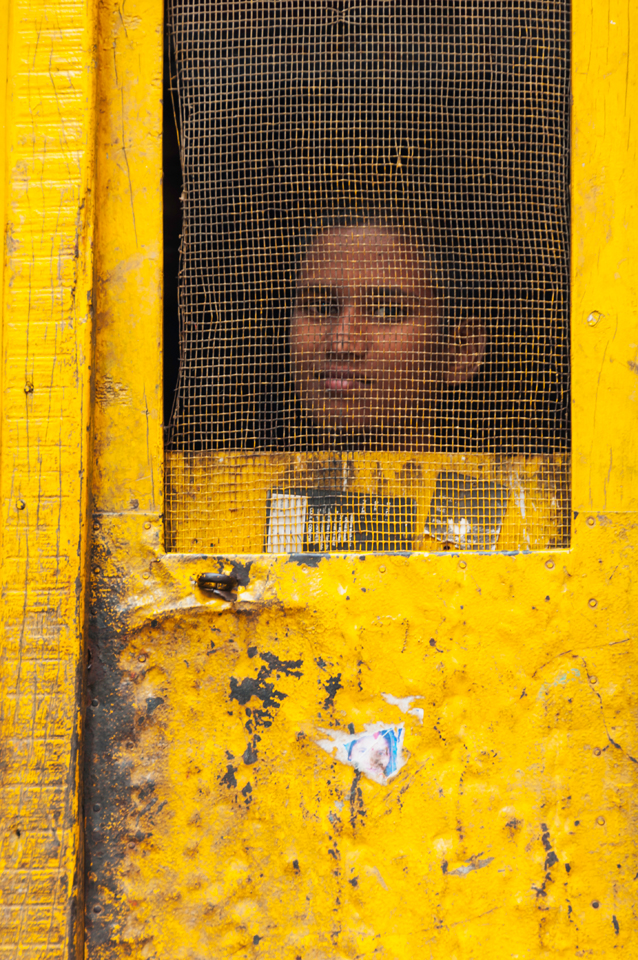
All of these are people I love and respect. This is the reason I photograph. I remain in touch with reality as it exists, not as I would have it. I am on a journey of (re)discovering love each moment, every single day. It is beautiful. I wouldn’t have it any other day.
And as the day came to an end, I met this beautiful old lady who sells flowers for a living. I still wonder what lies hidden within her heart? Resignation? Indignation? Unbearable pain? Memories of another life? Or even wishes for another life? But all I know for now is that she touched my soul.
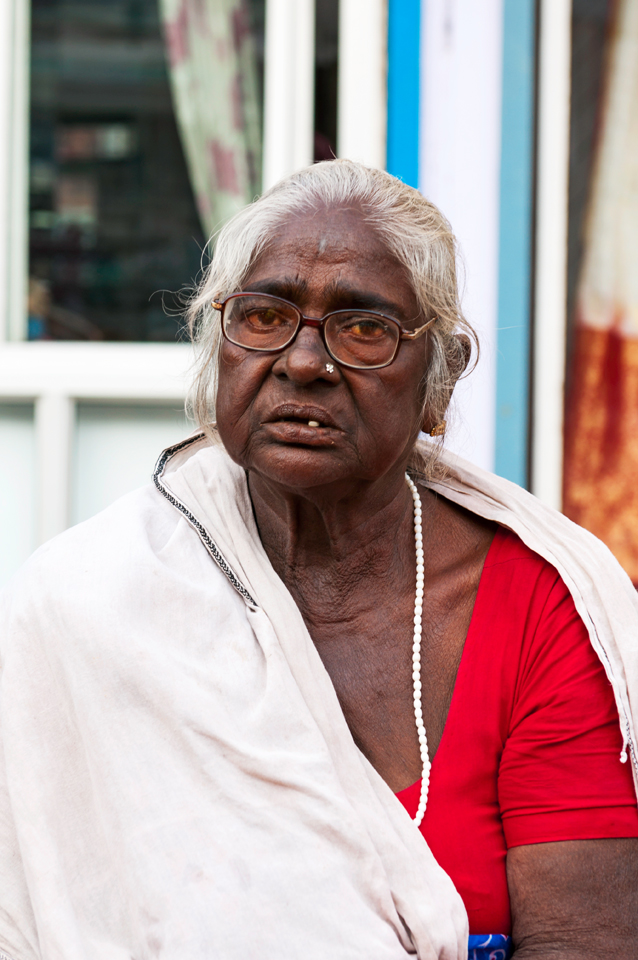
And yes, I’m not embarrassed of confessing here that I had tears in my eyes after I made this photograph of her. It reminds me of a line I wrote many years ago: “When your reason to cry and your reason to smile are both the same – then you truly have loved.”
I know.
For I have loved.
Leave a Reply